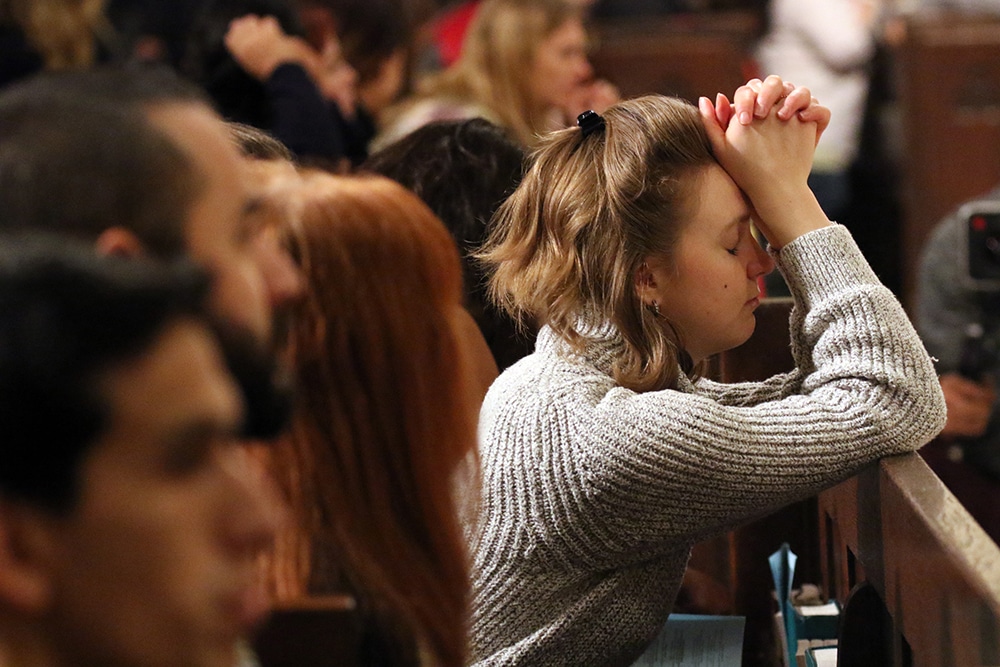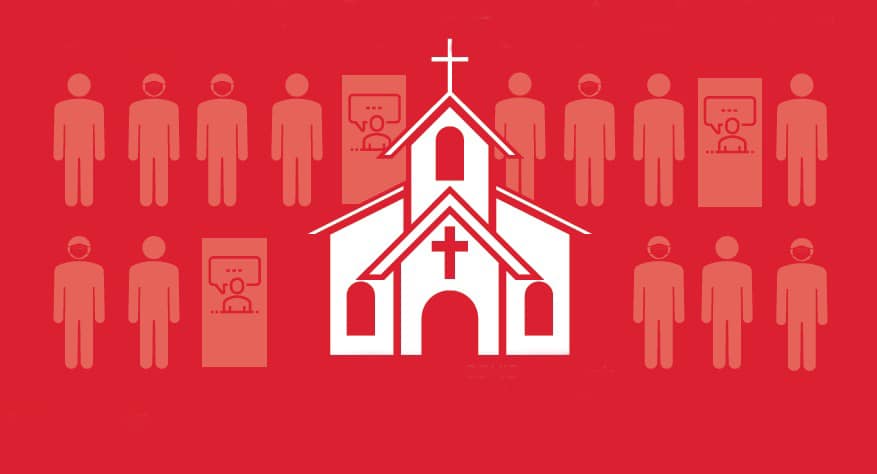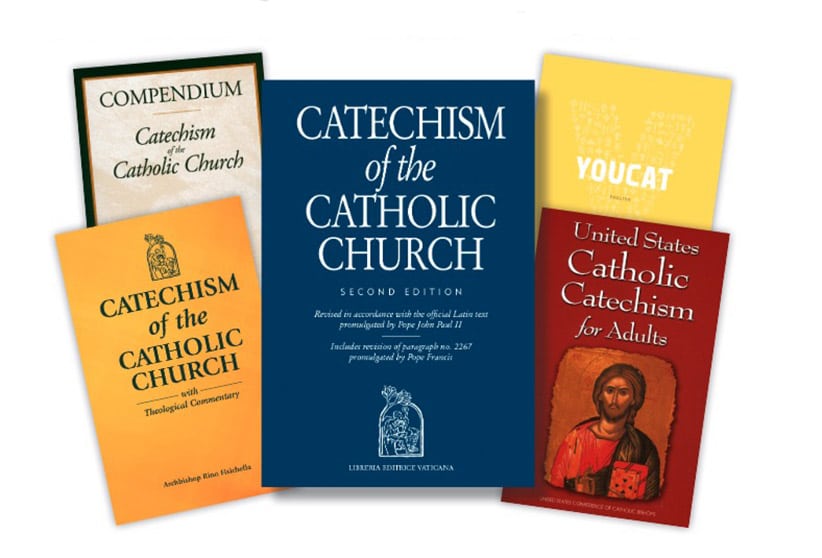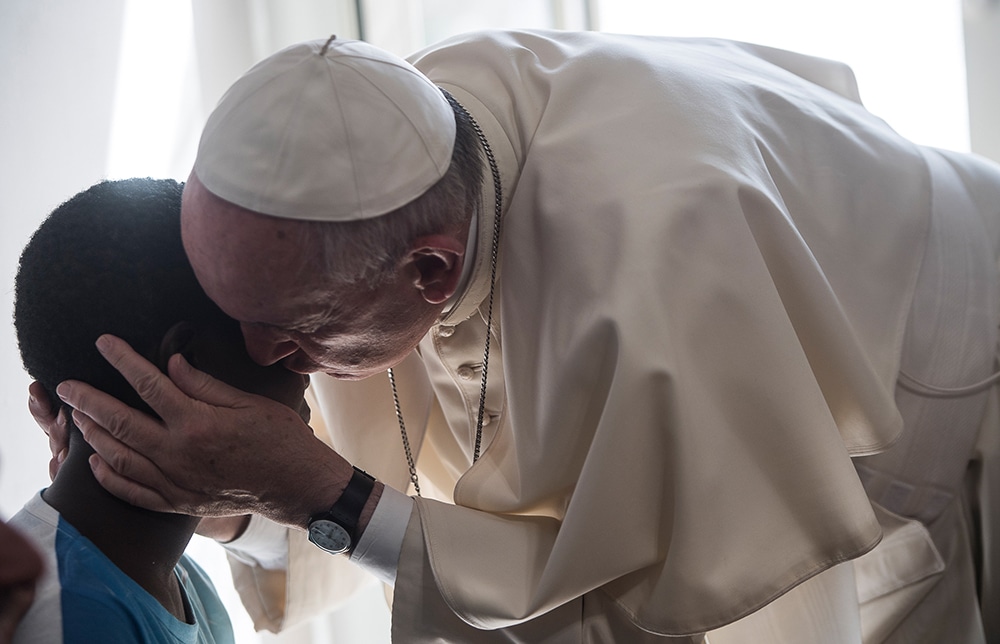You are not responsible for creating yourself. That’s a countercultural statement in our day and age. It is now common to assume that you must construct your own identity and establish a personal brand or profile that asserts your uniqueness … just like everyone else.
Creating yourself might sound like freedom; really, it is an overwhelming burden. To have to make yourself in an image and likeness that you invent demands a degree of originality that is improper and impossible. It also leaves you subject to the virtually irresistible allure of influencers and power brokers, who drown you in proposal after proposal about how you can “do you,” for yourself and by yourself.
That this myth of self-creation is a lie is, itself, good news. That doesn’t mean that you are then passive in becoming who you were created to be. Rather, it means that you are truly free to become someone of substance, who is more than the sum of various preferences.
Read more from our Letters to a Young Catholic series here.
As Christians, we know that we have been created and called. Because God has created us, we do not have to achieve value — we begin as valuable in his image and likeness. And because God calls us, our lives are not about earning love but rather learning to give a free and generous response to the love of God poured out for us in Christ.
The Dominican preacher Father Timothy Radcliffe puts the matter this way: “A vocation, whether to be a priest or a religious, married or to practice a profession, goes against [the] grain. It is a witness to our hope that my life as a whole may have some sense. I do not just do things; I am called to be someone, and a vocation is part of saying who I am” (“What is the Point of Being a Christian?,” Bloomsbury, $18.95).
Called to be someone
A priest wakes early on Tuesday to say his morning prayers and celebrate Mass for his parish. During breakfast, he receives a call that an elderly parishioner has been taken to the hospital and is not doing well. He arrives at the hospital room as family members start to gather. He administers the anointing of the sick to the old woman in the hospital bed. He leads the family in prayers. Then he waits with the family as they await their loved one’s death; he spends the better part of the day with them. The time he had planned to work on his homily for the weekend has been used up. Later that night, instead of reading for pleasure, he spends the hour working on his homily before saying his night prayers and going to bed. He is tired from caring for his flock and tending to their needs.
A mother hears her child cry in the night. She goes to his room and finds what she expected: The child became ill. The mother has been here before, and she doesn’t hesitate to pick him up to comfort and clean him. She lays him on her bed. She quickly strips her child’s bed and starts the laundry. She returns to her child to again comfort him, though comforting him means that she will sleep uncomfortably the rest of the night. In the morning, she is tired from her interrupted sleep — tired from placing her child’s needs above her own.
A teacher notices that one of her students has not been doing well in class. The teacher is feeling burned out from a long month teaching, but she asks the student to stay behind to see what’s going on. This is her lunch break, her one period of rest in the school day. The student eventually opens up. Things are not good for him at home, and it’s affecting everything. The teacher spends her whole lunch break with him, then follows up with a phone call home after school. She makes a plan with her colleagues for offering support to this student. She prays for him that night. At the end of the day, she is tired from teaching many students and giving special attention to the one who needed it most.
These are images of what it means to respond to the call to “be someone.” The priest, the mother and the teacher made commitments long ago to serve and love in particular ways, and now in the midst of the day to day, they choose how to live out those commitments. In each instance, their own preferences are laid aside as they choose the duty of love.
Serving God for a lifetime and for today
There are times in our lives when we approach big decisions about who we will be. The challenge is to hear the voice of God and then take responsibility for making a commitment. But then in the day to day, we face the challenge of living as Christ’s disciples in smaller decisions amid a variety of circumstances. In both the big decisions and smaller ones, we need to develop the spiritual skill of discernment: How does Christ call me to commit myself as his disciple, and how do I serve him today?
Many people turn to St. Ignatius of Loyola for guidance in discernment, and for good reason. His Spiritual Exercises guide people along a path of discernment, and his daily Examen helps them to enter into dialogue with God about their daily lives. The most important thing I found in following the way of St. Ignatius, however, is a simple daily prayer that forces me to remember what is most important and beg God for that most important thing. The prayer goes like this:
“My Lord and my God, I beg for the grace that all of my intentions, actions and operations may be directed solely to the praise and glory of your divine majesty.”
If you want to discern well, pray these words daily. This prayer begs for the grace to align yourself with God’s will. Intentions are what you mean to do; actions are what you do; and operations are how you do what you do. This prayer keeps us seeking the right thing in the right way, with God’s help.
When it comes to discerning particular choices — especially life commitments — people such as St. Ignatius offer us helpful practices, like imagining we are standing before the Lord at the end of our lives and looking back at this particular choice with him. The thing with these practices, though, is that they are not little tricks or techniques that suddenly make us capable of hearing God’s voice and wanting to respond. Rather, as St. Ignatius knew well, these practices build on long-standing Christian habits, which make true discernment possible. Here are four important habits:
First: the habit of pondering and praying. Dedicating time each day to being in silence with the Lord — say, 30 minutes — is crucial for getting used to listening for the Lord’s voice. Especially for people like us who are immersed in a world of noise, the only way to have time to listen to God is to make time to be with him.
Second: the habit of forming our memory and imagination. As Christian disciples, we must be shaped by Scripture, the liturgy and the sacraments. To be shaped by Scripture, we must regularly (at least weekly) study and pray with Scripture. We must participate in and learn to pray with the liturgy (including, if possible, the Liturgy of the Hours). And we must regularly receive the sacraments, growing in how we prepare for and respond to the sacraments.
Third: the habit of community. Regularly spending time with others, being attentive to the needs of others and acting on those needs, as well as allowing our own needs to be known to others who can care for us, is essential to the Christian life. Discernment is about discovering God’s call for how we are to love, and so becoming more perceptive to needs and skilled in performing acts of love equip us for true discernment. Along with this, finding and trusting a few key mentors keeps our discernment from becoming an exercise in individualism.
Fourth: the habit of sacrifice and commitment. At the end of any process of discernment — no matter how good or thorough the practice is — you, as the one who discerns, come to a gap that only you can cross: the gap of trust and responsibility. God trusts us to take responsibility for being someone: to accept the consequences and fulfill our commitments. The way to prepare for being able to do that in big ways is to practice doing that in small ways. We should take even our small commitments seriously. Be wise in making commitments and then trustworthy in fulfilling those commitments. Those who develop the habit of breaking small commitments often break big ones, while those who honor small commitments are better prepared to keep big ones.
If you have been reading along with my letters over these months, perhaps you found many resonances of previous letters in this one. That is no accident. All throughout, I have been writing to you about developing a Catholic character, and that character is the basis of true and faithful discernment.
Sincerely,

Leonard J. DeLorenzo, Ph.D., is the author of “What Matters Most: Empowering Young Catholics for Life’s Big Decisions” (Ave Maria Press, $16.95). Subscribe to his weekly newsletter, “Life, Sweetness, Hope,” at bit.ly/lifesweetnesshope.







